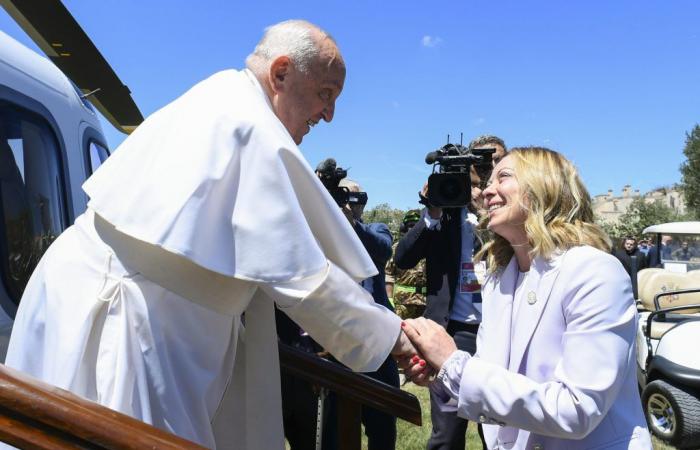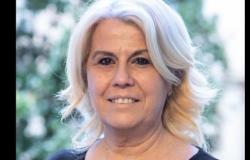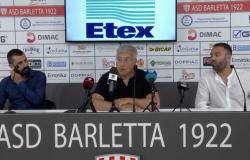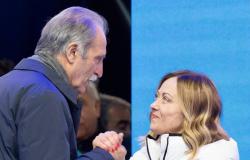
Almost all world leaders were standing as Pope Francis entered the Borgo Egnazia room hosting the session on artificial intelligence. Table turn in wheelchair for the pontiff, warmly embraced by his compatriot Javier Milei. Affectionate pat from the Brazilian Lula, handshake and brief conversation with the American Joe Biden and an intense dialogue aimed at Recep Tayyip Erdoğan. Then, the Pope takes his place next to Giorgia Meloni, who introduced the proceedings: «It is a historic moment, I will never thank Your Holiness him enough for being here, it is a great honor». The Pope shows two versions of the speech, “one long and one short, but I will read the short one”, he smiles, before starting by defining artificial intelligence as “a fascinating and tremendous tool”. It is a revolution in which the Vatican head of state sees the risk of “an increase in injustices”.
pros and cons
Artificial intelligence «on the one hand excites for the possibilities it offers, on the other it generates fear for the consequences it suggests». Among the positive examples, the Pope cited “the democratization of access to knowledge, the exponential progress of scientific research, the possibility of delegating strenuous work to machines”. At the same time, the dangers of this technology consist in the possibility of “a greater injustice between advanced nations and developing nations, between dominant social classes and oppressed social classes”. The development of «a “culture of encounter”», which would give way to «a “culture of waste”», would be affected.
Ethics
The Pope asked the members of the G7 and the leaders of the other countries participating in the outreach session to make an effort to combine artificial intelligence with ethics. «Only if their vocation to the service of humanity is guaranteed, technological tools will reveal not only the greatness and unique dignity of the human being, but also the mandate that the latter has received to cultivate and safeguard the planet and all its inhabitants. Talking about technology is talking about what it means to be human and therefore about our unique condition between freedom and responsibility, that is, it means talking about ethics.” In summary, for the pontiff it is essential that the control of technologies remains in human hands, “otherwise we will depend on machines”.
Lethal autonomous weapons
His Holiness’s warning is clear: «We would condemn humanity to a hopeless future if we took away from people the ability to decide about themselves and their lives, condemning them to depend on the choices of machines. We need to guarantee and protect a significant space for human control over the process of choosing artificial intelligence programs: human dignity itself is at stake.” Along these lines, Pope Francis urged those present to “ban lethal autonomous weapons”. And he explored the topic in depth: «In a drama like that of armed conflicts it is urgent to rethink the development and use of devices such as the so-called “lethal autonomous weapons” to ban their use, starting with an active and concrete commitment to introduce an ever greater and significant human control. No machine should ever choose whether to take the life of a human being.”
Education
«Many of us have been impressed by the applications easily available online to compose a text or produce an image on any theme or subject. Particularly attracted by this perspective are students who, when they have to prepare papers, make disproportionate use of them”, said the Pope, entering into the educational field of artificial intelligence. The abuse of which, however, exposes «the risk of legitimizing fake news and strengthening the advantage of a dominant culture. But also to undermine the educational process in its infancy. The education that should provide students with the possibility of authentic reflection risks being reduced to a repetition of notions, which will be increasingly evaluated as incontrovertible, simply because of their continuous re-proposition”.
Politics
“It is up to everyone to make good use” of artificial intelligence, concluded the Pope, and “it is up to politics to create the conditions so that such good use is possible and fruitful”. Faced with so many petty forms of politics aimed at immediate interests, the pontiff added, «political greatness is shown when, in difficult moments, one operates on the basis of great principles and thinking of the long-term common good. Political power finds it very difficult to accommodate this duty in a national project and even more so in a common project for present and future humanity. Global society has serious structural deficiencies that cannot be resolved with merely occasional patch-ups or quick fixes. There are things that need to be changed with fundamental resets and major transformations. Only a sound policy could lead it, involving the most diverse sectors and the most varied knowledge. In this way, an economy integrated into a political, social, cultural and popular project that tends towards the common good can open the way to different opportunities, which do not imply stopping human creativity and its dream of progress, but rather channeling this energy in a new way.”





